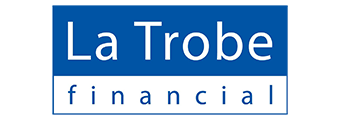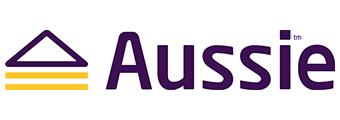You want to take out a home loan, but don’t have any credit history? This may automatically strike you out with many lenders, but there are likely plenty who will consider your application.
What does it mean to not have a credit history?
Some people simply have no credit history. That is, they’ve never owned a credit card, taken out a loan, or applied for a credit product.
Credit history
A person’s credit history is a record of the credit products they’ve applied for, taken out, or repaid, as well as their repayment history and any defaults service providers have reported – such as a missed bill. A credit score is a numerical representation of a person’s credit history.
Credit history plays a large part in a lender’s decision on whether to approve your home loan application or not. A lender will consider how you've managed your finances previously as an indication as to how you'll handle them in the future. The better your credit history, the less risky you’ll appear as a borrower. If you have no credit history, it makes it difficult for lenders to know whether you can be trusted to pay back a large sum of money.
In the eyes of most lenders, no credit history is better than having a bad credit history. But if you have no credit record, you remain an unknown quantity and might be lumped in with higher-risk borrowers.
Can you qualify for a home loan with no credit history?
Not having a credit history won’t necessarily disqualify you from taking out a home loan, but any lender you apply to might ask for additional information to prove you’re financially stable. If you can’t prove you’re an acceptable credit risk, your home loan application might be rejected.
Here are some ways to increase your chances of getting a loan even if you don’t have a credit history, or you don’t have a credit history recorded in Australia:
Prove you're in a strong financial position
You can demonstrate your creditworthiness by having most, or all, of the following:
-
Full-time, stable employment
-
An income that will enable you to make the repayments for a home loan
-
No history of dishonour fees, late bills payments, or failed payments with your debit card
-
Evidence of monthly savings
Face the reality
While it’s possible to get a home loan without a credit history, some loan types and sizes may still be out of reach owing to responsible lending practices. You may also face a limited choice of lenders.
As such, it pays to do your research to find out what loan type and size you may have a chance to be approved for and which lenders may consider your loan application. A mortgage broker can be useful in helping you source the best lenders and products for your circumstances.
It’s also worth noting that even if you’re in a relatively strong financial position, some lenders may only offer you the same loan they offer to borrowers with a poor credit history. It’s an unfortunate but common outcome for borrowers with no credit history.
Is there such a thing as ‘no credit check home loan’?
No credit check home loans may have existed in Australia in the past, but with the introduction of stricter lending guidelines in the wake of the GFC, home loans without a credit check were effectively rendered irresponsible and subject to penalty.
In their place, some specialist lenders offer so-called bad credit home loans. These involve much tighter lending criteria, higher interest rates and fees, and stricter terms and conditions than mainstream mortgages.
They can be expensive and add considerably to the cost of a home loan over a 30-year term. For this reason, they’re regarded as a short-term option until the borrower’s credit score improves and they can refinance to a home loan with a lower interest rate and better terms and conditions.
Such specialist lenders may also be willing to grant home loans to people without credit histories, taking into account their individual circumstances.
What if you have a sizeable deposit but no credit history?
The power of a strong deposit shouldn’t be overlooked. It may help you secure a bigger loan, a better rate, and more favourable terms and conditions, even if you don’t have a credit history.
Simply put, the larger your deposit, the less risk the lender takes on when it provides you a home loan. If you were to default on your repayments, the lender will assume it has a better chance of recouping its losses on selling the mortgaged property if you have considerable equity in the home.
What if you have no deposit and no credit history?
If your deposit is more modest, you might need to bolster it to secure a home loan with no credit history. Ideally, at least half of your deposit should be made up of genuine savings – that is, money you’ve saved up yourself over time.
Some lenders may consider a deposit as low as 5% but this will likely come with stricter conditions and higher interest rates, not to mention lenders mortgage insurance (LMI). Without a deposit, lenders will likely reject your home loan application.
See also: Can you buy a home without a deposit?
One way you may be able to secure a home loan with no or low deposit and no credit history is to find a guarantor – a close relative who essentially agrees to make your repayments if you cannot.
If you have credit history overseas, will it affect your application?
In most cases, your overseas credit history will have no bearing on your home loan application in Australia, as Australian lenders generally can’t access overseas credit files. The exception here relates to New Zealand. Some banks in Australia also have operations in New Zealand and may be able to access your credit history there when assessing your home loan application.
Generally speaking, however, there is no cross-border sharing of credit information between countries. This can work to your advantage if you have a poor credit record in another country but can be a disadvantage to those who have a good credit record elsewhere.
What is the best solution to a lack of credit history?
If you lack a credit history, the easiest solution is to build up a positive one. This may be able to help you secure a better loan deal and a lower interest rate.
If you have a reasonable deposit and you can prove a secure income and responsible spending behaviour, you might not need a credit history to secure a competitive home loan.
Here’s how you can establish both a credit history and credit score:
-
Seek out manageable credit products, such as a credit card with a low credit limit, low interest, and no annual fee
-
Once you’ve secured a form of credit, make sure you're meticulous with the repayments
-
If you're experiencing financial difficulties, call your creditors, explain your situation, and try to negotiate monthly payments. This may still be recorded on your credit history but will be better regarded if you've continued to make regular payments according to your means.
Fairly or unfairly, paying your bills on time won’t help you build a credit history, but missing any payments might impact it negatively. For that reason, make sure you:
-
Always pay your bills in full and on time
-
Be cautious when signing up for services that carry monthly fees such as streaming services, phones, internet, and gym memberships. These are fine if you use them and pay for them diligently, but they can sometimes come with lock-in conditions or hefty cancellation fees and any missed payments may be recorded on your credit history.
-
Always cancel or transfer your services and utilities when you move house.
Whether you apply for a home loan with no credit history or delay your plans to build a positive credit history, your chance of securing a home loan will depend almost entirely on your individual circumstances.
If you don’t meet standard mortgage criteria, there’re specialist lenders that may be willing to lend to you. As with most financial matters, you need to do your research or seek the assistance of a mortgage broker who can help steer you in the right direction.
The table below features lenders that offer alternative documentation home loans with some of the most competitive rates on the market:
Lender Home Loan Interest Rate Comparison Rate* Monthly Repayment Repayment type Rate Type Offset Redraw Ongoing Fees Upfront Fees Max LVR Lump Sum Repayment Additional Repayments Split Loan Option Tags Features Link Compare Promoted Product Disclosure
Image by Brooke Cagle on Unsplash
Collections: Credit Reports Home Loan Application












Share